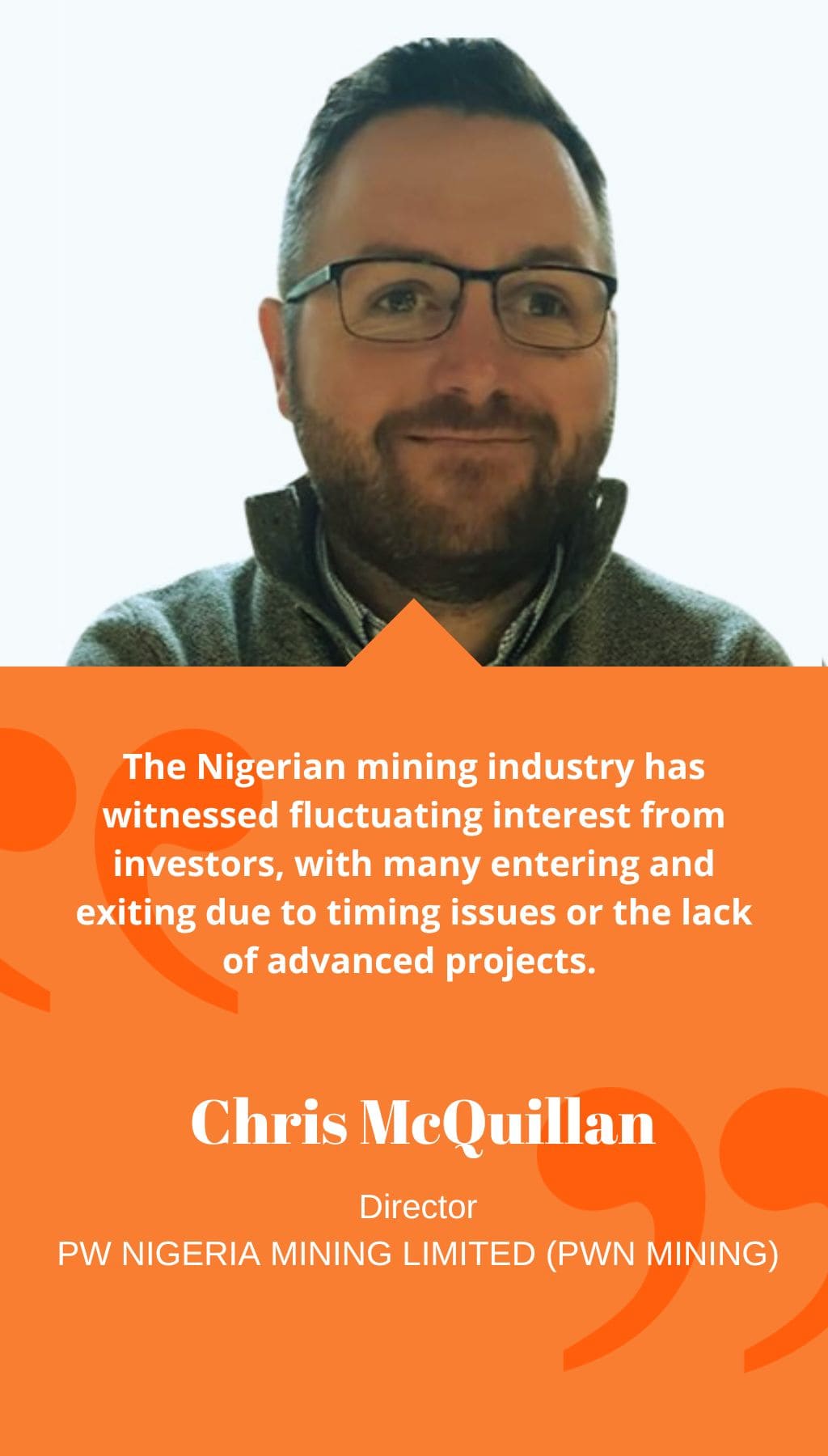
- Nigeria | 18 June 2020

Can you provide us with a background on the history of PW Nigeria Limited (PWN) in Nigeria?
PWN has a rich history in Nigeria. Originally operated out of the UK and Ireland, the company saw an opportunity to expand to Nigeria in 1974. For the next 40 years, PWN focused on civil engineering projects, playing a significant role in the development of over 5,000 km of road networks, constructing more than 200 bridges, and moving a staggering 65 million m3 of earth.
Earlier this year, PWN underwent a change in ownership and became part of the BUA Group, the second-largest company on the Nigerian Stock Exchange. While maintaining close ties with its former sister companies, PWN has shifted its focus to a diverse portfolio of new mining projects and Federal infrastructure initiatives.
How has the business evolved towards mining, and what is its current focus?
In 2015, PWN recognized the need to diversify due to the economic slowdown and reduced infrastructure investments from the Federal and State levels. This led us to venture into the mining industry, leveraging our expertise in earthmoving and drawing upon the experience gained as part of the larger PW Group. Through a thorough analysis, we identified a gap in the Nigerian mining industry—there was no significant player specializing in formal exploration and industrial contract mining.
To address this gap, PWN formed strategic partnerships. We joined forces with Meridian Drilling to provide professional drilling services to the Nigerian market. Additionally, we facilitated the entry of MS Analytical, a Canadian laboratory with experience in West Africa, to help Nigeria reduce the costs associated with sample analysis abroad. These strategic moves allowed us to establish a strong mining division. Last year, we incorporated PW Nigeria Mining Limited after securing vital bulk mining projects with Symbol Mining and Lafarge Africa. Despite the challenges faced in 2020, our mining portfolio continued to grow, demonstrating positive momentum.
PWN also acquired gold exploration leases and currently holds four targets. This led to a joint venture agreement with Moydow Resources, an active player in Ghana, Burkina Faso, and Mali. The drilling results thus far have been promising. Although we did not initially plan to own a mine in Nigeria, the immediate opportunities compelled us to change our perspective and become deeply involved in all aspects of gold development in the country. We now offer a comprehensive turnkey contract for potential investors and have proven our ability to mitigate project risks.
How do you envision the future of the mining industry in Nigeria?
The Nigerian mining industry has witnessed fluctuating interest from investors, with many entering and exiting due to timing issues or the lack of advanced projects. However, with our strong and robust mining division, we are starting to see increased momentum. The successful development of mines by companies like Thor Exploration with their Segiola project has captured the attention of larger players in the sector. Nevertheless, there is still work to be done to attract more significant investments.
In our efforts to contribute to the growth of the mining industry, we delved into the historical data on gold occurrences in the Nigerian schist belts dating back to the early 1900s. During that time, there was great excitement about the metal and jewel potential in Nigeria. Unfortunately, this coincided with the discovery of oil, which drew significant financial backing and focus away from mining. From our perspective, the mining industry in Nigeria remains largely untapped across a wide range of minerals. PWN Mining aims to reignite the enthusiasm that existed between 1900 and 1960.
What sets PWN apart in the market, and what are the main growth pillars moving forward?
PWN differentiates itself by offering a turnkey approach to mining projects, providing comprehensive support from early exploration stages to full mine operations. Our extensive experience of 45 years in Nigeria positions us as the contractor of choice, especially in uncertain and volatile times. We also boast a strong logistics network and maintain excellent relations with governmental and non-governmental entities. These factors, combined with our proven track record, contribute to our competitive advantage and serve as the main pillars for future growth.














